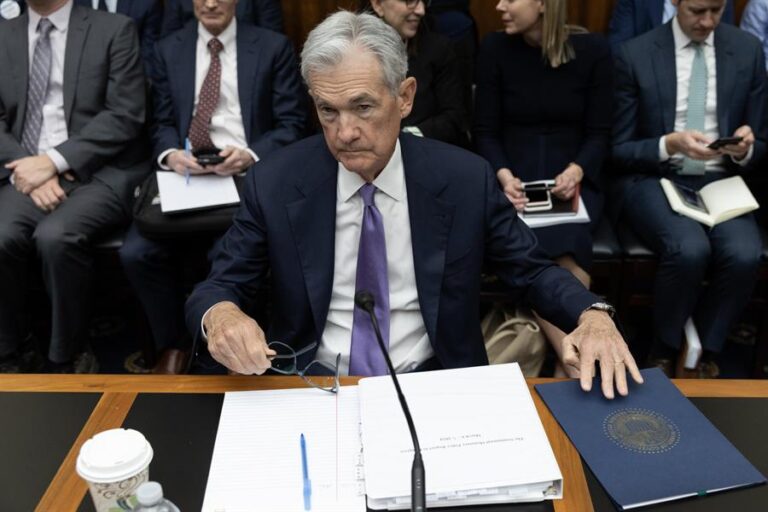
“Less restrictive financial conditions” FED
Washington, Mar 6 (EFE) –
“Less restrictive financial conditions” will prevail in the coming months according to the Federal Reserve’s Beige Book economic outlook, released on Wednesday, an indication that interest rates could lower before the end of the year.
The report also said that “the outlook for future economic growth remained generally positive” and that there are “expectations for stronger demand and less restrictive financial conditions over the next 6 to 12 months.”

The Beige Book is a publication of the US regulator that analyzes current economic conditions in the 12 districts into which the Fed divides the country, based on qualitative information collected by each reserve.
Meanwhile, the US Federal Reserve Chairman Jerome Powell told the House Financial Services Committee on Wednesday that “if the economy evolves broadly as expected, it will likely be appropriate to begin removing policy accommodation at some point this year.”
However, he was cautious about inflation, adding that “the economic outlook is uncertain, and continued progress toward our 2 percent inflation objective is not assured.”
Against a backdrop of high interest rates, which have remained in the 5.25% to 5.5% range since July, their highest level since 2001, the Fed said that in recent months, loan demand has been “held steady or declined,” depending on the area, and credit quality has been “generally healthy, despite some reports of rising delinquencies.
The Beige Book also noted that while “price pressures persisted during the reporting period,” there was “some moderation in inflation.”
It added that “businesses found it more difficult to pass on higher costs to their customers, who became increasingly sensitive to price changes.”

The Fed also spoke of shipping disruptions in the Red Sea and the Panama Canal, which “generally did not have a notable impact on businesses during the reporting period,” but “increasing pressures on international shipping costs” are documented. EFE
pem/mcd/ics


